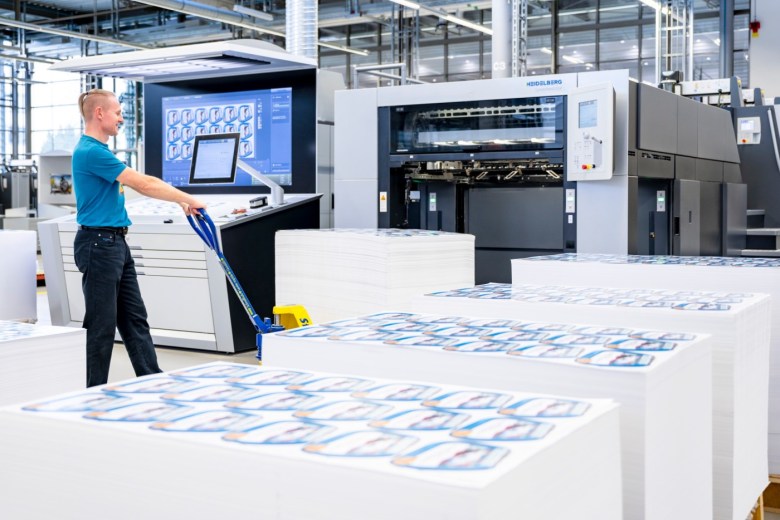
Following the success of its subscription model, Heidelberg has further expanded its data-based contract business by adding to its existing Heidelberg Subscription portfolio under which customers no longer pay for the equipment they use, but simply for the number of sheets produced.
The company has placed greater emphasis on its partnership-based approach, meaning that the new options support the Smart Print Shop concept developed by Heidelberg to boost the overall efficiency of print shops.
The Print Site Contracts, which are now available, provide a variable combination of consumables, services, software, performance consulting, training, and equipment solutions in a single package.
Print Site Contracts are available in the form of lifecycle agreements or subscription. Customers have a choice of four packages with different scopes of services and methods of payment.
They range from a “Lifecycle Smart” contract that includes services and consumables to a “Subscription Plus” package that covers consulting, training, service, consumables, Prinect software, and equipment solutions.
Along with reducing makeready and throughput times, the overall focus is also on increasing net output while also generating less waste.
The monthly fees for the standard “Lifecycle Smart” and “Lifecycle Plus” packages are determined by the services used. In the case of the “Subscription Smart” and “Subscription Plus” options, they depend on the actual output. The packages can be combined with the purchase of a new press or based on the customer’s existing equipment.
Heidelberg head of lifecycle business Garo Derderian said the new contract options avoid the considerable expense of obtaining each of the offerings included in the contract individually.
“Heidelberg is helping to improve the print shop production process with our new range of partnership-based Print Site Contracts, leaving customers to focus more on their market, and on developing service and product innovations,” Derderian said.
“Perfect interaction of the various components is the only way of optimising the production process. The extensive wealth of data obtained via the link to machines in the service environment, which Heidelberg makes a point of utilising for the new contracts, plays a key role in this regard.”
Dr. David Schmedding, who is in charge of the new business models at Heidelberg, said the ongoing development of data-based capabilities is creating a performance profile that is unique in the industry.
“The contracts’ focus on optimising Heidelberg products during the operating phase has now become a vital focal point of the company’s strategy and ensures the innovative edge of its high-end equipment solutions is put to good use,” he said.
In the medium-term, Heidelberg mentioned that it is planning to generate around 30 per cent of its total sales from contract business.
Comment below to have your say on this story.
If you have a news story or tip-off, get in touch at editorial@sprinter.com.au.
Sign up to the Sprinter newsletter
